So, you’re thinking about getting an electric car. That’s great! But here’s something you might be scratching your head over: what is the average electric car charger installation cost? The answer is more than one-size-fits-all, as the cost can range from a few hundred to over a thousand pounds. Intrigued? Let’s delve into the specifics.
The Rising Popularity of Electric Cars

Norfolk, Suffolk & Cambridge mirrors the rest of the UK’s growing love for electric vehicles. Why? Well, there are two main reasons: the government’s commitment to cleaner air and the motivation of drivers like you to reduce their carbon footprint. Swapping your petrol or diesel car for an electric one is a great way to help the environment.
Factors That Impact the Car Charger Installation Cost
As the number of electric cars on our roads increases, so does the demand for electric car charging points. After all, it’s super convenient to have a home charging point to recharge your car at home.
But how much will it cost to install an electric car charger at home? Well, there are a few things to consider:
- Type of Charger: Slow chargers are more affordable but take longer to charge your car. Fast chargers and rapid chargers are pricier, but they’ll get your car ready to go in less time.
- Distance to Fuse Box: If your charger needs to be installed far from your fuse box, you’ll need more cabling, which means a higher cost.
- Electricity Supply Adjustments: Some installations may require changes to your existing electricity supply or fuse box, potentially increasing the overall price. Plus, additional electricity usage from the charger might call for an upgrade to your electricity meter.
Think about it like this: If you’re planning to convert your garage into a personal charging station, or you’ve got a spot reserved on your driveway, you might need to lay some groundwork or install a safety switch, which could bump up the cost.
Installing an EV charger at home could cost anywhere from £400 to £1,500, depending on your circumstances.
How to Get an Electric Car Charger Installed
Installing an electric vehicle charger isn’t a weekend DIY project. This job is best left to the professionals who install electric car chargers. Certified electricians are equipped with the skills to ensure everything is installed safely and correctly, which is critical for your peace of mind.
A typical electric car charger installation quotation will include the charger itself, the labour, and any additional materials or modifications required. Always choose a reputable installer who can provide a precise quote upfront to avoid any surprise costs down the line.
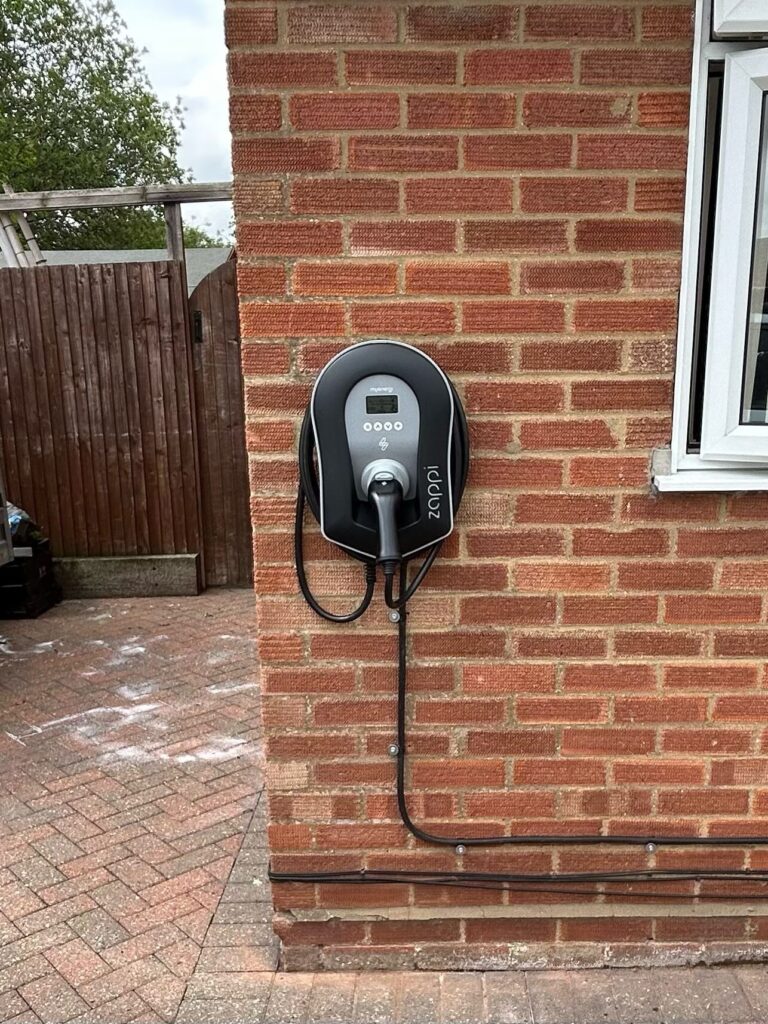
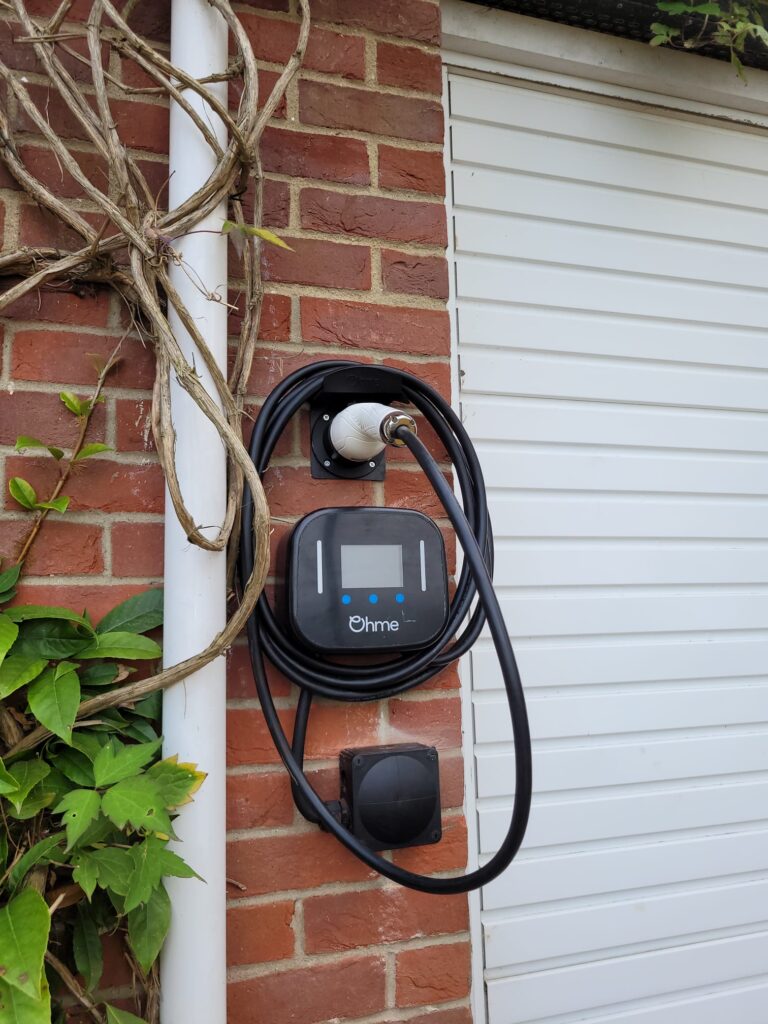
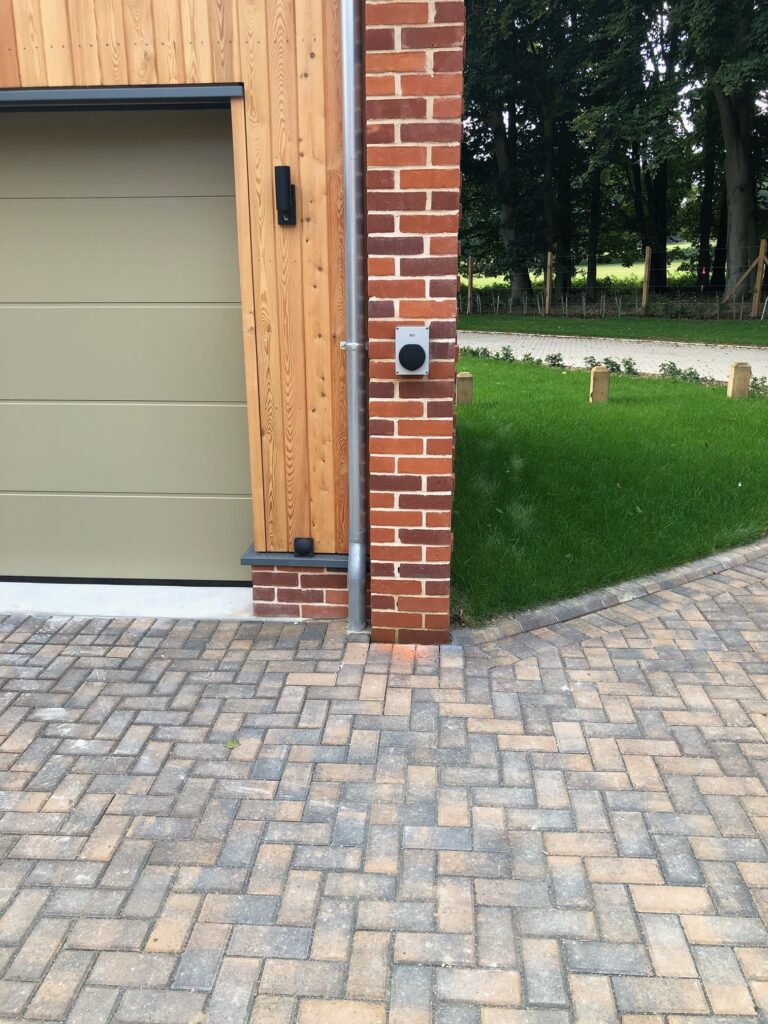
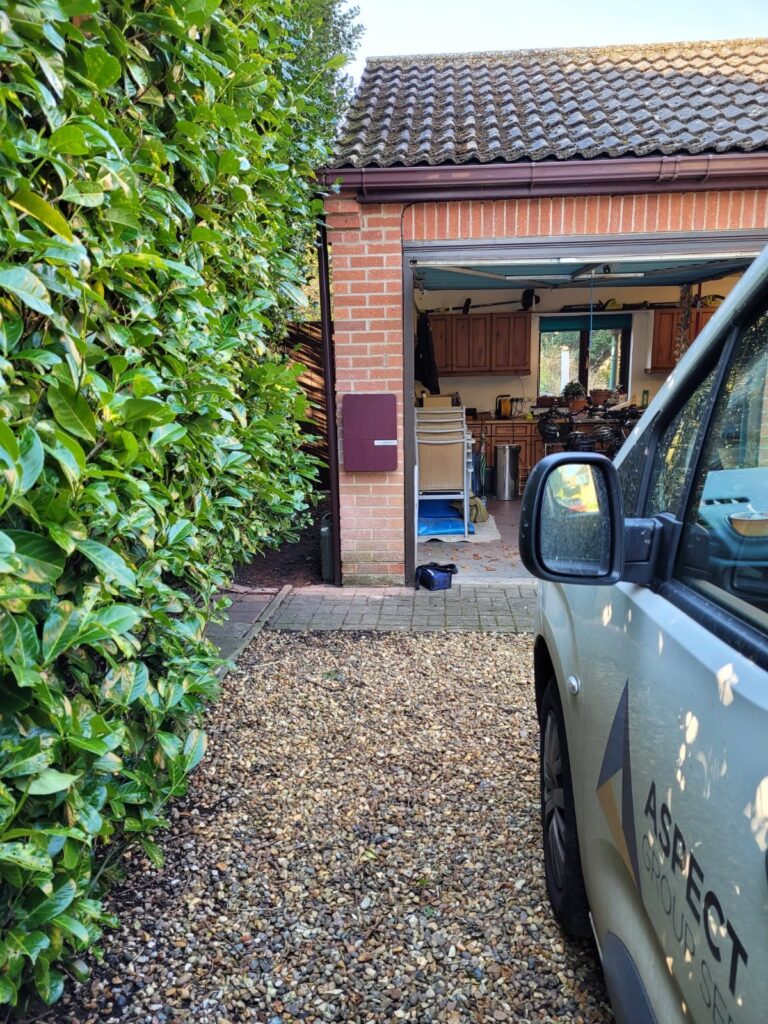
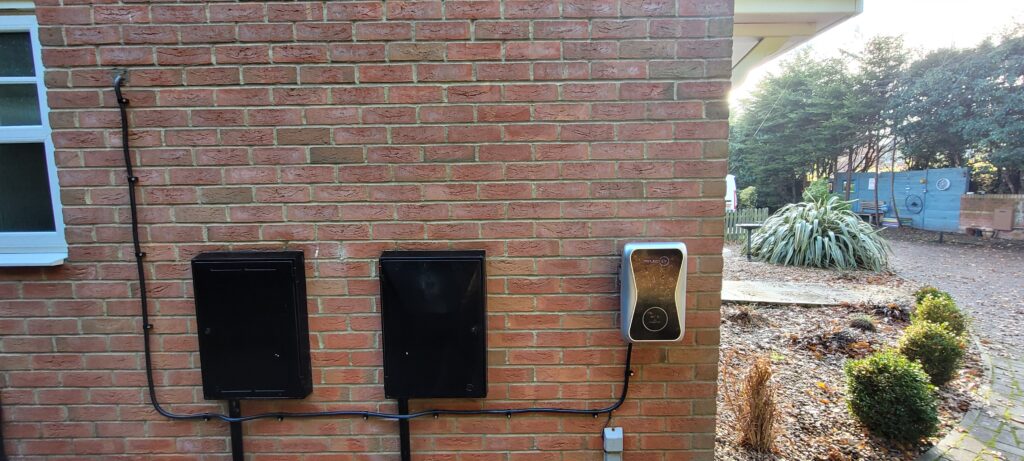

Exploring Different Types of Chargers
It’s a more than one-size-fits-all scenario when discussing electric car chargers. In fact, chargers are categorised into three main types: slow, fast, and rapid. Let’s get to know them a bit better:
Slow Chargers: This is the most basic type, often the cheapest, and can be plugged into a regular plug socket. They’re called ‘slow’ because they take quite a while to fully charge an electric car. On average, you might be looking at 6 to 12 hours, depending on your electric vehicle charging capacity. However, they could be suitable if you’re happy to leave your car charging overnight.
Fast Chargers: These chargers typically charge your vehicle in 3 to 4 hours. Yes, they are shorter, but they require a dedicated circuit and professional installation. Some popular fast chargers include the Ohme Home Charger 7kW and the Wallbox Pulsar Plus.
Rapid Chargers: As the name suggests, these chargers provide the fastest charging times, often taking less than an hour to charge your car’s battery significantly. While super speedy, they’re also the most expensive and may require substantial changes to your home’s electricity supply.
Remember, the type of charger you choose should align with your needs and lifestyle. Do you need a quick turnaround, or are you OK with overnight charging? Your answer to this question can guide your decision.
Charger Brands Worth Checking Out
A range of brands are out there producing reliable and efficient EV chargers. Here are three worth considering:
Ohme Home Charger 7kW: This fast charger is known for its smart charging features. It can automatically choose the cheapest times to charge your car, helping you save on electricity bills. It’s also compatible with Type 1 and Type 2 connectors, making it versatile.
Zappi: What sets Zappi apart is its eco-friendly focus. This smart charger can be integrated with your home’s solar panels or wind turbine, allowing you to use renewable energy to charge your electric vehicle. Pretty clever, right?
Wallbox Pulsar Plus: This compact charger offers a powerful punch. It has smart charging capabilities and can be controlled through an app on your phone. Its smaller size makes it an excellent choice for domestic properties with limited space.
These brands are just the tip of the iceberg. There’s a world of innovative and convenient EV chargers out there, and finding the right one for your home involves considering your personal needs, preferences, and budget.
Remember, no matter what charger or brand you opt for, the goal is to make owning an electric vehicle easy and convenient while contributing to a cleaner, greener planet.
Can Government Grants Lower the Cost?
In its ongoing drive towards energy efficiency, the UK government launched the ECO4 Scheme in April 2022. This ambitious initiative aims to increase the number of energy-efficient homes nationwide, taking us one step closer to a greener UK by providing grants for the installation of electric vehicle chargers.
Additionally, the Electric Vehicle Homecharge Scheme (EVHS) offers financial support for installing electric car chargers at home. This scheme covers a significant percentage of the purchase and installation cost, benefiting homeowners, tenants, flat-owner occupiers, and landlords transitioning to sustainable vehicles.
Some eligibility requirements do apply to the ECO4 Scheme. It primarily targets individuals with a lower income or those receiving specific benefits. Want to find out more? [Click here] to visit the government website.


The Future of Electric Car Charging: What Can We Expect?
The market for electric cars and chargers is set to grow exponentially. What’s driving this growth? The UK government’s plan to ban the sale of new petrol and diesel cars by 2030, plus exciting advancements in EV charging technology.
Here’s a peek at what’s coming:
- Smart Chargers: These are gaining popularity for their ability to be programmed to charge your EV during off-peak electricity tariff periods, saving you money and reducing strain on the grid.
- Renewable Energy Sources: Integrating solar panels and wind power with EV chargers is a trend that’s picking up pace. Imagine using the electricity generated by your own solar panels to charge your EV!
Is It Worth It?
Here’s a question: Is it worth installing an EV charger at home? Consider this: charging at home is usually cheaper than using a public charging point, and it’s definitely more convenient than waiting around at a public charger.
Also, having your own EV charger gives you control over when you charge your vehicle, and you can do it overnight when electricity rates are lower.
The initial installation cost can often be offset by long-term savings and convenience. So, it’s a sound investment.
Wrapping It Up
So there you have it. The cost to install an EV charger at home can vary quite a bit depending on several factors, but it’s an investment that pays off in the long run.
Government schemes like the ECO4 can make it more affordable, too. And remember, as we move towards a greener future, adopting electric vehicles and installing EV chargers at home isn’t just a trend, it’s a necessity.
Are you ready to do your part for a greener future? Contact us today to help install EV chargers for Norfolk, Suffolk & Cambridge residents and embrace the convenience of home charging. You’ll wonder how you ever lived without it!


